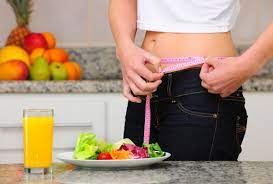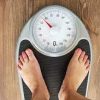Why did I gain weight on a keto diet?
Gaining weight on a keto diet can be surprising, especially given its reputation for weight loss. Several factors might contribute to this unexpected outcome:
### 1. **Caloric Surplus**
– **Overeating High-Calorie Foods**: The keto diet emphasizes high-fat foods, which are calorie-dense. Consuming more calories than your body needs, even from healthy fats, can lead to weight gain.
– **Portion Sizes**: Without tracking portion sizes, it’s easy to overconsume calories, especially when eating nuts, cheese, or avocados.

### 2. **Hidden Carbohydrates**
– **Carb Creep**: Consuming more carbs than intended can prevent the body from entering or maintaining ketosis. Many processed keto-friendly foods still contain hidden carbs that can add up quickly.
– **Label Misreading**: Misreading food labels and not accounting for total carbs, including fiber, can result in higher carbohydrate intake.
### 3. **Lack of Physical Activity**
– **Sedentary Lifestyle**: Even on a low-carb diet, a lack of physical activity can prevent weight loss or contribute to weight gain. Exercise helps create a caloric deficit and boosts metabolism.
### 4. **Inadequate Protein Intake**
– **Too Much Protein**: Consuming excessive protein can lead to gluconeogenesis, where the body converts protein into glucose, potentially kicking you out of ketosis and stalling weight loss.
### 5. **Hormonal Factors**
– **Insulin Sensitivity**: Individual differences in insulin sensitivity and hormonal responses to food can affect weight loss. Some people might not respond as well to the high-fat content of the keto diet.
– **Stress and Cortisol**: High stress levels can increase cortisol, a hormone that can lead to weight gain, particularly around the abdomen.
### 6. **Water Retention**
– **Electrolyte Imbalance**: The keto diet can cause shifts in electrolytes and fluid balance. Inadequate hydration and imbalanced electrolytes can lead to water retention.
### 7. **Gut Health**
– **Digestive Issues**: A sudden change in diet can affect gut health and digestion, potentially leading to bloating and weight gain. Ensuring adequate fiber intake from low-carb vegetables is essential.
### 8. **Caloric Beverages**
– **Keto-Friendly Drinks**: Consuming high-calorie, keto-friendly drinks, like bulletproof coffee (coffee with added butter and MCT oil), can contribute significant calories without providing much satiety.
### Solutions to Address Weight Gain on Keto:
1. **Track Your Intake**: Use a food diary or an app to monitor your daily calorie and macronutrient intake. Ensure you’re not exceeding your caloric needs.
2. **Watch Portion Sizes**: Be mindful of portion sizes, especially with high-calorie foods like nuts, cheese, and oils.
3. **Stay Hydrated**: Drink plenty of water and maintain a balance of electrolytes to prevent water retention.
4. **Exercise Regularly**: Incorporate both aerobic and strength training exercises to boost your metabolism and aid weight loss.
5. **Manage Stress**: Practice stress-reducing activities such as meditation, yoga, or deep breathing exercises to help regulate cortisol levels.
6. **Focus on Whole Foods**: Prioritize whole, unprocessed foods and be cautious with keto-friendly processed snacks and treats.
7. **Check Hidden Carbs**: Read food labels carefully to avoid hidden carbs that can add up and affect ketosis.
### Conclusion
Weight gain on a keto diet can result from several factors, including caloric surplus, hidden carbohydrates, lack of exercise, and hormonal imbalances. Monitoring your intake, staying active, and managing stress can help address these issues. If weight gain persists, consulting with a healthcare professional or a registered dietitian can provide personalized guidance and help you achieve your health and weight loss goals.
Losing weight Check our Latest products!
Be the first to review “Why did I gain weight on a keto diet?” Cancel reply
Related products
Losing weight
Losing weight
Losing weight
Losing weight
















Reviews
There are no reviews yet.